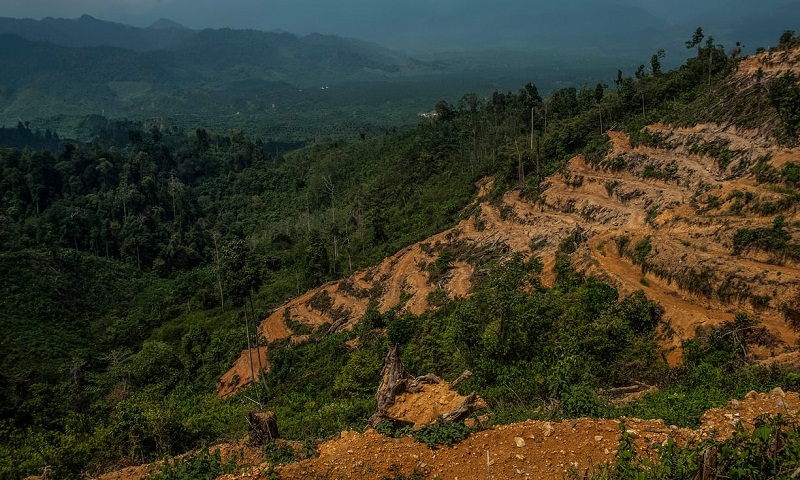Pepsico, Unilever and Nestlé accused of complicity in illegal rain forest destruction

Pepsico, Unilever and Nestlé have been accused of complicity in the destruction of Sumatra’s last tract of rainforest shared by elephants, orangutans, rhinos, and tigers together in one ecosystem. Plantations built on deforested land have allegedly been used to supply palm oil to scores of household brands that also include McDonald’s, Mars, Kellogg’s and Procter & Gamble, according to a new report. “If more immediate action is not taken to enforce ‘no deforestation’ policies, these brands will be remembered as the corporate giants responsible for the destruction of the last place on earth where Sumatran elephants, orangutans, rhinos and tigers roamed side by side,” says the study by Rainforest Action Network (RAN). Using satellite data, photographic evidence and GPS coordinates, the research builds on evidence gathered earlier this year to show ongoing illegal forest clearances across swathes of the 2.6m hectare Leuser ecosystem, despite a moratorium announced last June. The palm oil reaches major brands via a twisting supply chain that stretches from the PT Agra Bumi Niaga (ABN) logging company, which delivers to a processing mill owned by PT Ensem Sawita (ES), which then sells the palm oil on to some of the world’s largest traders. PT is an abbreviation that denotes a limited liability company in Indonesia. PT ABN declined requests for comment but after extensive Guardian inquiries, PT ES admitted using ABN’s palm oil – due to confusion after the logging firm changed its name – and said that it “regretted this failure”. The company promised to “strengthen our traceability practices by exchanging information to relevant stakeholders who have palm oil plantation data.” However, Gemma Tillack, RAN’s agribusiness campaigns director, said that ABN’s name change had been reported, and the continued inability of palm traders and food brands to source the palm they used back to the plantations showed a wider failing of due diligence systems. “Relying on NGOs to uncover the truth is simply not good enough,” she said. “If RAN, with our relatively limited budget, can figure it out, then multibillion dollar, multinational corporations certainly can. The fact that they haven’t demonstrates that it is not a lack of ability holding them back, but a lack of will.” Leuser’s vanishing ecosystem is already have a devastating effect on critically endangered elephants which use it as a migratory corridor. At least 35 elephants were killed in Leuser between 2012-2015, and human-animal conflicts are fast increasing as palm plantations fragment animal habitats.

